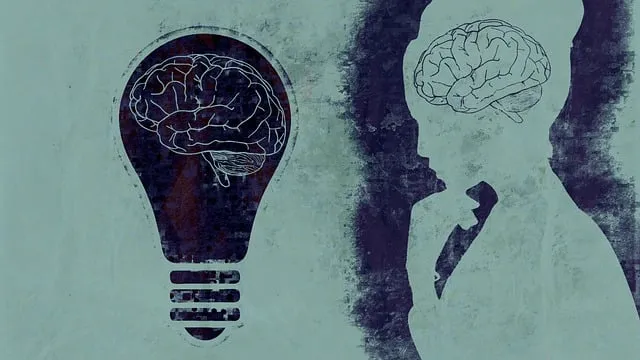Cultural competency, as demonstrated by Castle Rock Kaiser Permanente (CRKP), is key in delivering high-quality mental health care through active listening, cultural awareness, and integrating Mind Over Matter principles. Analyzing mental health appointment numbers reveals diverse community needs, guiding resource allocation for equitable access. Cross-cultural communication training for healthcare providers should focus on empathy, active listening, and conflict resolution techniques. Measuring the impact of this training goes beyond satisfaction, including qualitative assessments of self-care improvements, stress management, and changes in provider attitudes during mental health appointments.
Healthcare provider cultural competency training is a vital pillar in modern healthcare delivery, ensuring quality patient care across diverse backgrounds. This article explores the comprehensive Castle Rock Kaiser Permanente model, which emphasizes cultural sensitivity in mental health services. We delve into tracking key metrics like the Castle Rock Kaiser Permanente mental health appointment number to gauge diversity and improve patient outcomes. Additionally, we discuss effective training strategies for cross-cultural communication and methods to measure the impact of cultural competency programs.
- Understanding Cultural Competency in Healthcare: The Castle Rock Kaiser Permanente Model
- Mental Health Appointment Number: Tracking Patient Care and Diversity
- Training Strategies for Effective Cross-Cultural Communication
- Measuring and Evaluating the Impact of Cultural Competency Programs
Understanding Cultural Competency in Healthcare: The Castle Rock Kaiser Permanente Model

Cultural competency in healthcare is a critical aspect that goes beyond treating symptoms; it involves understanding and respecting diverse cultural backgrounds, beliefs, and values. The Castle Rock Kaiser Permanente (CRKP) model serves as an exemplary framework for enhancing cultural competence, particularly in mental health care. CRKP has developed innovative strategies to bridge the gap between healthcare providers and patients from various cultural groups, focusing on building empathy and fostering a safe, inclusive environment.
The model emphasizes active listening, cultural awareness, and the integration of Mind Over Matter principles—a set of practices that encourage emotional healing processes. By incorporating these empathy-building strategies, CRKP ensures that mental health appointments are not just clinical interactions but transformative experiences. This approach not only improves patient outcomes but also strengthens the bond between healthcare providers and individuals seeking support, creating a more culturally responsive healthcare system.
Mental Health Appointment Number: Tracking Patient Care and Diversity

In today’s diverse healthcare landscape, mental health appointment numbers play a crucial role in tracking patient care and diversity at organizations like Castle Rock Kaiser Permanente. By meticulously recording and analyzing these appointments, healthcare providers can gain valuable insights into the types of services being utilized, patient demographics, and referral sources. This data is not just numerical; it tells stories of diverse communities and their unique mental health needs. For instance, tracking mental health appointment numbers can reveal a higher demand for crisis intervention guidance among certain cultural groups or age brackets, underscoring the need for tailored Communication Strategies and Conflict Resolution Techniques to address these specific challenges.
Moreover, such data allows healthcare providers to identify trends that may indicate disparities in access to care. By understanding where patients are coming from and what services they require most, Castle Rock Kaiser Permanente can ensure its resources are allocated effectively and equitably. This proactive approach not only enhances patient outcomes but also fosters a more inclusive and responsive healthcare environment, reflecting the organization’s commitment to cultural competency training and improving mental health care for all.
Training Strategies for Effective Cross-Cultural Communication

Effective cross-cultural communication is a cornerstone of healthcare provider training, particularly within diverse organizations like Castle Rock Kaiser Permanente. Strategies should focus on fostering empathy, active listening, and clear language use to bridge cultural gaps during mental health appointments. Workshops can incorporate role-playing scenarios where providers practice navigating sensitive topics with patients from different backgrounds, enhancing their emotional intelligence and conflict resolution techniques.
One approach involves Stress Management Workshops Organization, which equips healthcare professionals with tools to recognize and manage stress related to cultural differences. By integrating Emotional Intelligence into training, providers learn to adapt their communication styles, building stronger connections with patients. Moreover, Conflict Resolution Techniques are essential for handling misunderstandings that may arise due to cultural miscommunications, ensuring patient care remains a top priority throughout these interactions.
Measuring and Evaluating the Impact of Cultural Competency Programs

Measuring the impact of cultural competency training within healthcare organizations is essential to understanding its effectiveness. At Castle Rock Kaiser Permanente, for instance, evaluating programs goes beyond quantitative metrics like attendance rates or satisfaction scores. Qualitative assessments, including feedback from participants and healthcare providers, offer valuable insights into the real-world application of learned skills. By exploring how cultural competency training influences patient interactions, clinical outcomes, and provider well-being, organizations can gauge the program’s overall success.
Self-care practices and coping skill development are key areas to assess. Programs aimed at enhancing mental health support should encourage participants to integrate self-care routines into their daily lives. Tracking improvements in participants’ ability to manage stress, maintain balanced lifestyles, and seek help for mental health concerns can demonstrate the program’s value. Additionally, evaluating changes in provider attitudes and behaviors related to cultural sensitivity during mental health appointments (like those at Castle Rock Kaiser Permanente) provides a comprehensive view of the initiative’s reach and influence.
Healthcare provider cultural competency training, as exemplified by the Castle Rock Kaiser Permanente model, is a crucial strategy for improving patient care and outcomes, particularly in diverse populations. By tracking mental health appointment numbers and employing effective cross-cultural communication strategies, healthcare organizations can create inclusive environments that address the unique needs of every patient. Measuring and evaluating the impact of cultural competency programs ensures continuous improvement, fostering a more compassionate and competent healthcare system that resonates with all communities, as illustrated by the success of the Castle Rock Kaiser Permanente mental health appointment number initiative.






